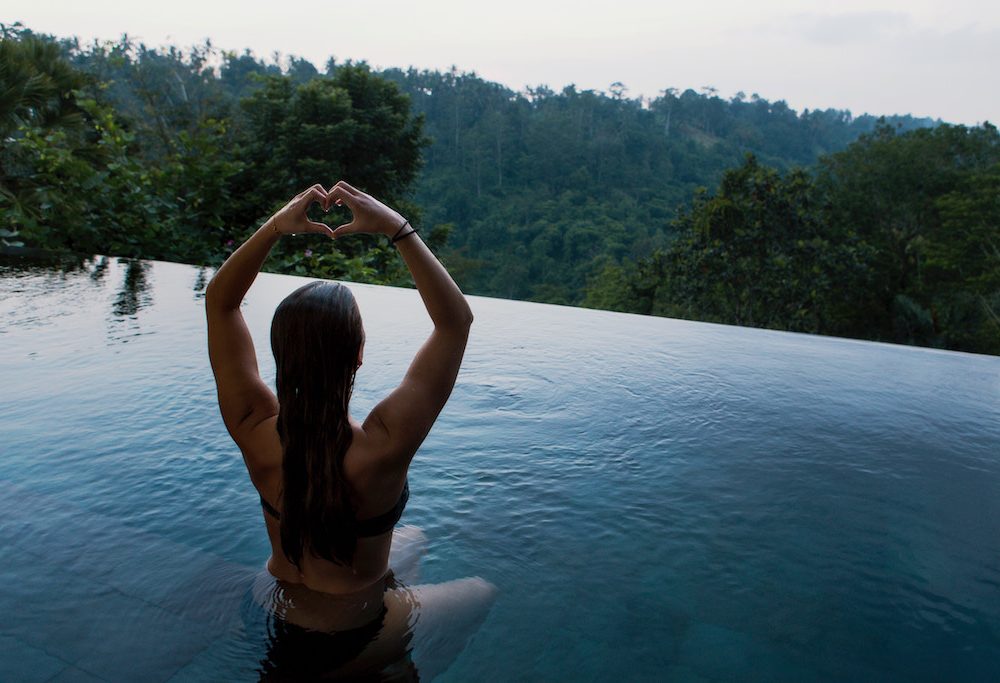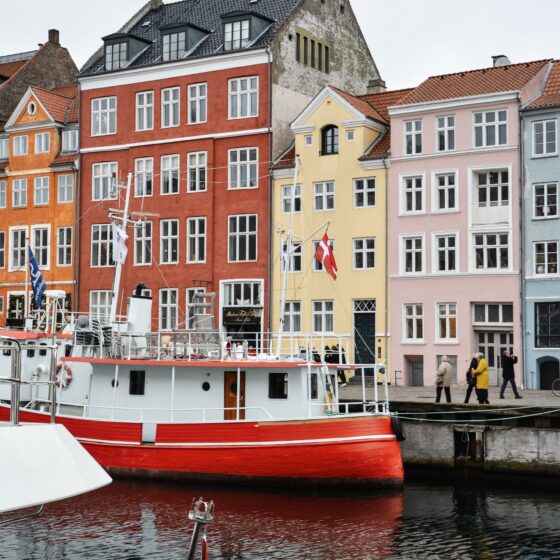According to a survey by Wix, half of Brits get the holiday blues and think about jacking in their jobs when they return to work in September, with one in three saying they want to make travel a full-time gig by starting their own business online.
No doubt many of them have seen the Instagram influencers casually putting together a business plan on a hammock or checking their emails by the side of an infinity pool.
Let me just start by smashing that stereotype. I’ve been working remotely for eight years and travelling the world as a digital nomad – with my entire life including my freelance journalism business in my 50 litre Osprey backpack – for nearly two. And I’m yet to meet a single person who runs their business from the beach.
As one digital nomad friend, fellow freelance journalist Josefin Strang, put it when I told her I was writing this article, “The sun’s glare would ruin your laptop and the thought of getting sand in your keyboard – that just gives me the shivers.”
In reality, you’ll usually find us holed up in an air-conditioned room in a guesthouse, mainlining coffee as we curse the Internet, which has just dropped out on another important call, while scrambling to meet our deadlines, just like any other freelancer.
Only, unlike a freelancer with a fixed abode, we’ll then have to figure out where the nearest supermarket is, how to top up our 4G data and where we’re going to be sleeping next week.
“It’s very easy to be lured by this image of the beautiful life you see on Instagram, but it can actually be a super draining lifestyle,” says Esther Holland, a life coach who’s been a digital nomad for three years, and an ‘analogue nomad’ for the seven years before that. “I think a lot of people underestimate that it takes extra energy just to do the daily stuff, which is why I think it’s not for everyone.”
And those are just the practical considerations. Pretty much every digital nomad I’ve spoken to says the biggest challenge of this lifestyle is the loneliness. “You find someone nice and then three days from now they’re going to Nepal!” Strang laughs.
‘A privilege and a luxury’
So why do we keep going? Because, while Instagram may paint an unrealistic version of #digitalnomadlife, that doesn’t mean it isn’t amazing, inspiring and life changing.
Holland is talking to me from a tiny fishing village in east Bali, where she’s decided to base herself for a couple of months because she loves the local life, the nature, and the diving. Meanwhile, Strang is dialling in from Luang Prabang in Laos. “It’s such a privilege and luxury to be able to choose exactly what kind of nature and culture I want to surround myself with,” she tells me.
I also catch up with Ruby Platts-Mills, who hasn’t slept in the same bed for more than two weeks in the last three years. In that time, she and her partner, who she travels with, have planted trees in Borneo, cycled from Cambodia to Vietnam and driven across America, among many other adventures.
For work, she teaches English online and is launching a sustainable fashion collective called Mothers Mend, designed to encourage people to repair, alter and upcycle their clothes, while allowing mothers to get back into work and providing them with a community.
“That freedom – being able to meet people from other cultures, experience other cultures and really live in it – is the big thing for me,” she says. “But I do think it’s interesting that a big driving force of the company I’m setting up is to do with community, because that’s what I miss most while I’m on the road,” she says.
As for me, even after eight years of working remotely, it hasn’t gotten old that one day I might clock off work at 5pm to learn how to cook a curry in a small beachside town in Sri Lanka and the same day the next month, I’ll be squeezing in a pre-work surfing session in Bali. Even the challenges of digital nomadism have some positives. Starting again over and over may be exhausting but putting myself out there and meeting new people on such a regular basis has built strength, confidence and resilience I never knew I had.
A growing community
The good news for would-be digital nomads is that a supportive, inclusive digital nomad community is growing, thanks to the hard work of people like Jenny Lachs and Kit Whelan, who fell in love with the location independent lifestyle many years ago but struggled to find friends to share it with.
In fact, I’m writing this article from a Zoom virtual coworking room that I’m sharing with 15 other women located all over the world. We’re all part of Lachs’ Digital Nomad Girls Community, which she originally set up in 2015 to make some girlfriends and has now grown to more than 20,000 members.
Later in the month, I’ll be meeting a few of them in real life at the 7in7 digital nomad conference in New Zealand, which Whelan, who has been on the road for more than a decade, set up four years ago out of frustration about two things.
“First, we were frustrated with the ‘bromad’, male-dominated community at the time and secondly, we were losing good people from our community because they didn’t identify with the prevailing narrative at the time, which was the Instagram, ‘everything is great all the time, we’re working at the beach’ thing,” she explains. “Everyone needs a community and I think it’s especially true of those of us who spend so much of our time behind a screen by ourselves in new and unusual places.”
She’s been blown away by the feedback she’s had from attendees. “We just brought people together – that’s the magic. It’s not some big secret!” she says. I can’t wait to experience it first-hand in Wellington. Topics under discussion will include mental health for digital nomads, burnout, and how to manage remote teams.
Before I leave our Zoom meeting, I ask Whelan how she thinks digital nomadism will play into the future of work, a topic we’re both passionate about. Her response really puts things in perspective.
“Digital nomadism is an itty little bit – a little drop in the bucket – of remote work but we’re the ones that get the most press,” she says. “We’ve got the sexy lives, we’re jetsetting all over the world. No one wants to write about the single stay at home mom in Oklahoma who’s providing for her kids and spending more time with them because she can work remotely.”
“So I think we have a responsibility to lead in a way that’s ethical and inclusive because like it or not, we dominate the conversation on remote work in a lot of ways. And while the nomad lifestyle isn’t for everyone – we’re an unusual group compared to the norm! – there are so many lessons we’re learning because we’re leaping into it and figuring it out. We can pass those lessons on to the wider communities in our home countries and the countries we visit – to say actually, yeah you could work from home, you could start a business, you could start a community project to bring people together.”
With half of Brits set to be working remotely by 2020, if the ONS is to be believed, those lessons can’t come soon enough.









